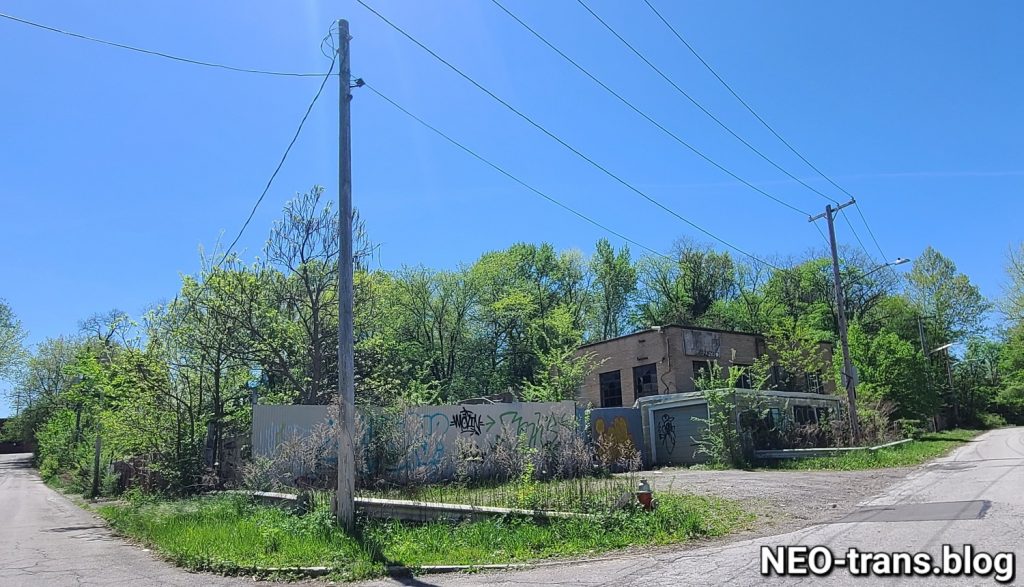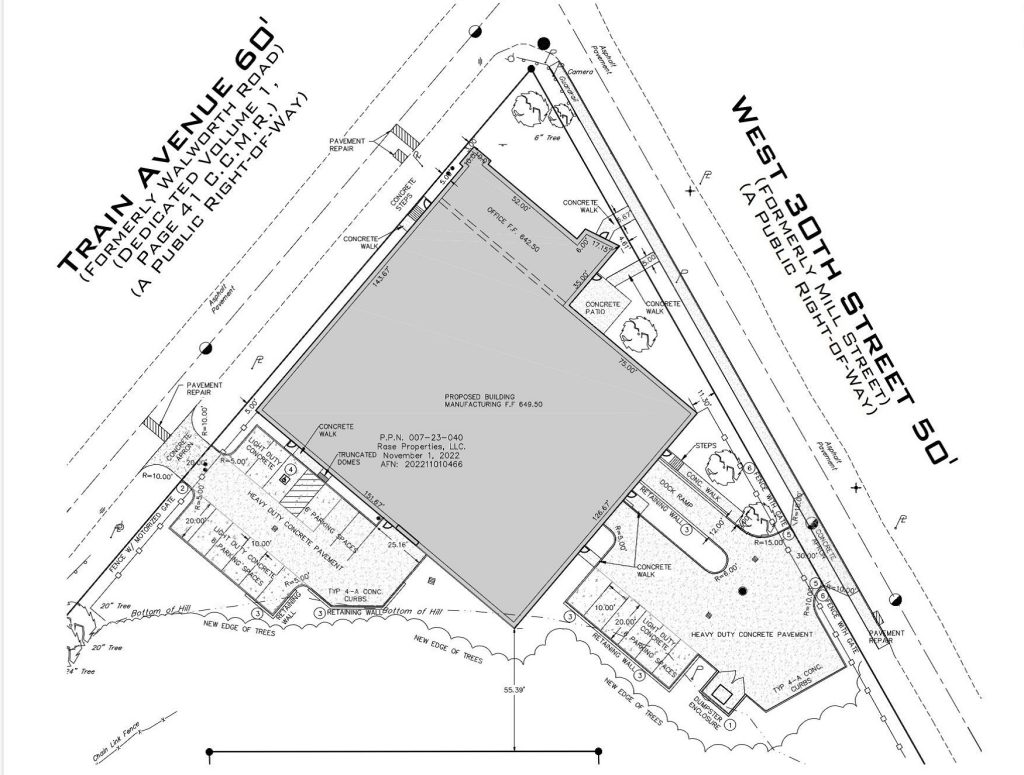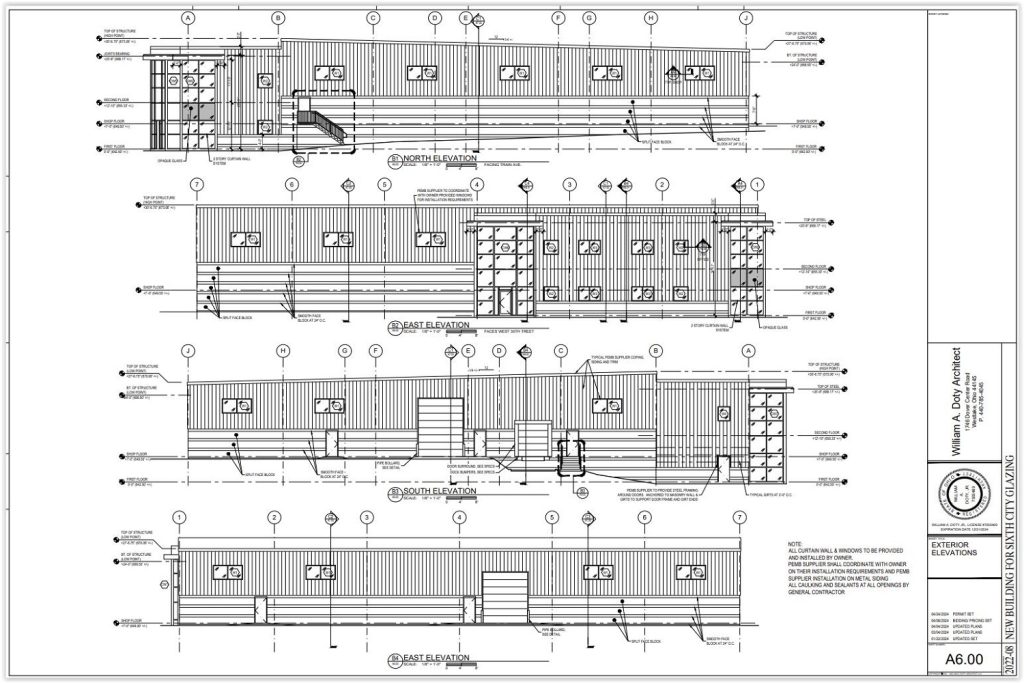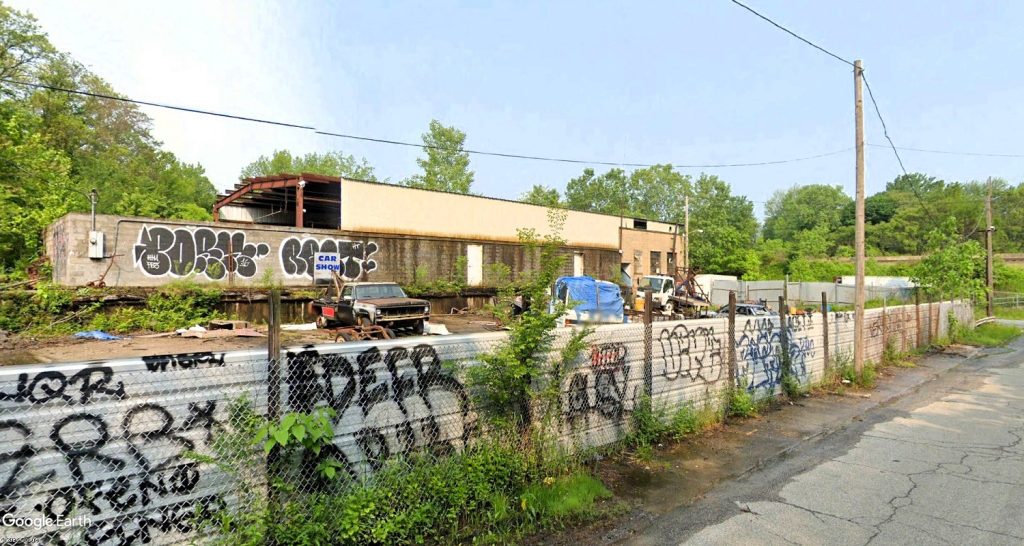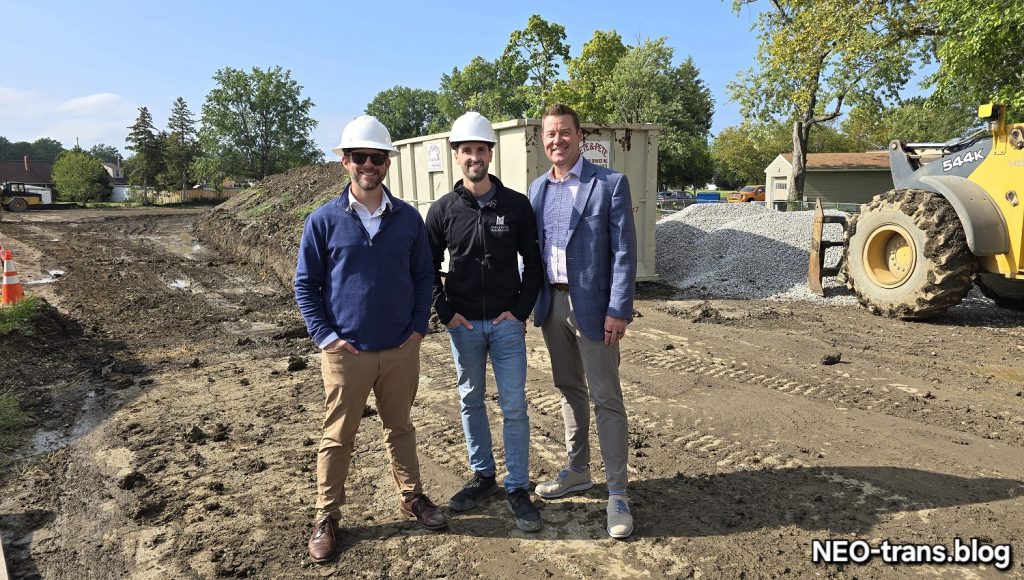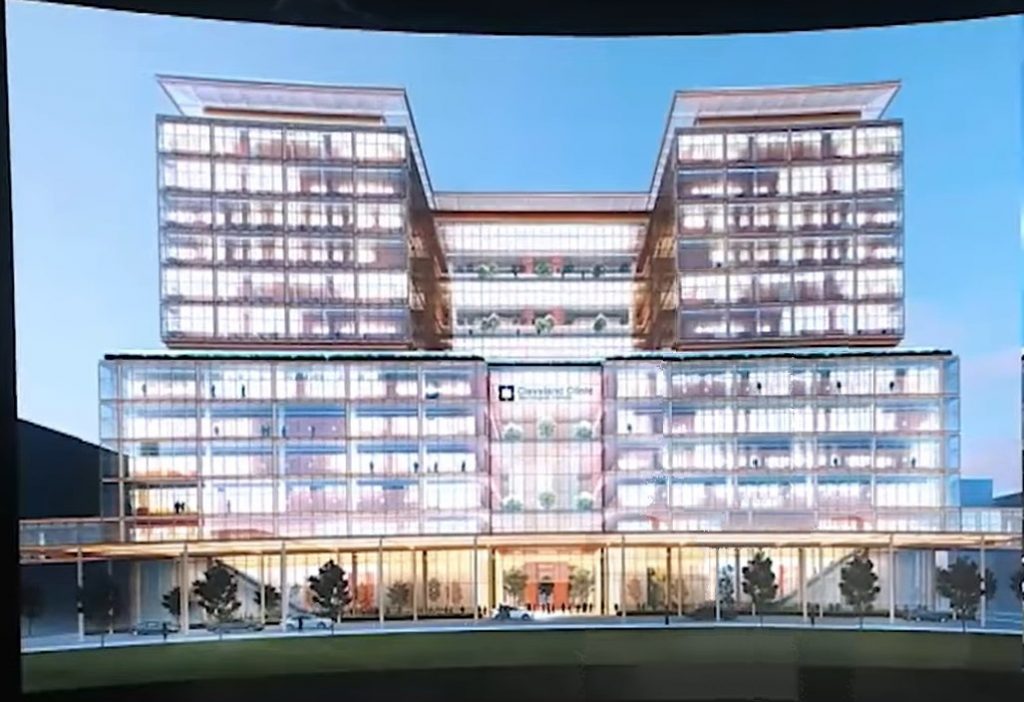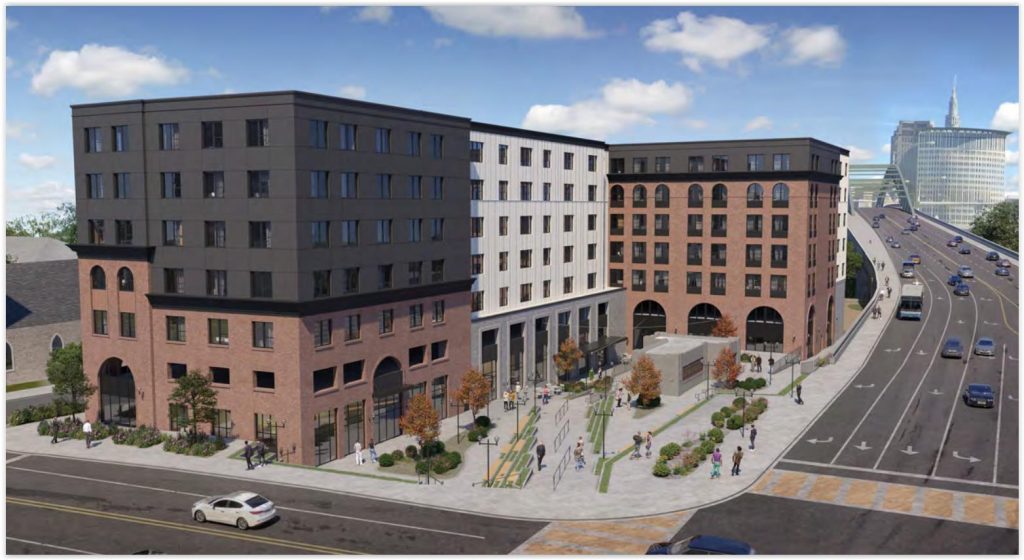Plans submitted for reactivating Clark-Fulton site
ARTICLE UPDATED MAY 3, 2024
Along a Cleveland street known historically for dumping everything from trash to murder victims, a long-neglected property is about to gain something almost priceless — a future. On Train Avenue in the city’s Clark-Fulton neighborhood, a truck terminal turned junk yard, infested with weeds, littered with abandoned vehicles and tagged with graffiti, is due to be replaced by a growing glass-glazing business and nearly 20 jobs from the suburbs.
But Sixth City Glazing‘s new permanent home at 3119 Train does carry a price — estimated at $3 million for the new building, parking and landscaping, according to a building permit application filed with the city of Cleveland this week. Currently located in a leased space in a multitenant complex off Abbey Road in suburban North Royalton, Sixth City’s new site will put the business closer to its customers.
Those customers include owners of new and renovated apartment and commercial buildings who are looking for storefront glass or curtain wall systems. Sixth City Glazing’s co-owners Alex Euse and Rob Strickland applied their background in construction to start this company in 2018. It is one of many new businesses and investments popping up along long-neglected Train Avenue.
Euse told NEOtrans in a brief phone interview that they hope to break ground for their new building this July. Construction should take about one year. “We’re really looking forward to it. It’s very exciting,” Euse said.
“What we’re proposing here is having our headquarters, our shop and office space on this site,” Strickland explained to the Board of Zoning Appeals (BZA) in July 2023 — one of many steps in the approvals process the project has had to take thus far.
“The majority of the building that we’re proposing will be our manufacturing facility which involves building the storefront and curtain wall windows for fabrication,” he added. “Then we eventually take those out on to the site and install them. Cutting operations and then assembly operations are the nature of the manufacturing facility.”
Euse and Strickland have already overseen a lot of work on the 1.9-acre site. The work includes clearing out the abandoned vehicles, demolition of a 1988-built storage warehouse plus the excavation and removal of an underground storage tank. The latter was facilitated by a $50,000 recoverable grant awarded by the city from the Municipal Small Business Initiative Program.
Next up, according to a building permit application submitted to the city, is the demolition of a 1948-built, one-story office building. Replacing it will be a 22,500-square-foot building that includes a two-story office structure at the corner of Train and West 30th Street with most of the offices facing West 30th.
Since the business works with glass, the office building is proposed to have glass curtain walls at its corners, Strickland told the BZA panel last summer. Behind the offices will be a larger but single-level fabrication and finishing plant bracketed by two parking lots and a loading dock/ramp accessed from West 30th, plans show.
BZA’s involvement was due to the proposed design not fully meeting several parts of the zoning code. Chief among them was the fact that the property is located in a multi-family district with an urban form overlay. Since the property has been used for industrial purposes since the late-1970s and as a truck terminal in the three decades prior, BZA was willing to allow the nonconforming use to continue. Other aspects of the design were tweaked.
Those plans were also approved last summer by the City Planning Commission’s Design Review Committee. To conform with the urban form overlay, the office building and fabrication plant were placed next to the sidewalk on Train. Demolition of the existing structures is included in the building permit now pending, according to the Building Department’s Web portal.
Demolition couldn’t come soon enough. The portal also shows that the latest among many complaints over the years was submitted April 9 for general exterior maintenance issues at the property, specifically “Broken windows and fence in disrepair. Roof also showing wear.” An earthmoving vehicle is on site, possibly to demolish the 1940s office building. Strickland did not respond to an e-mail from NEOtrans, seeking an update on the project.
Rase Properties LLC, which is also owned by Euse and Strickland according to state records, acquired the property at Train and West 30th in November 2022 from Tows Are Us Inc. for $250,000, county records show. When Sixth City Glazing began pursuing the new facility, the company had only nine employees. It’s now approaching 20.
The area along Walworth Run was one of Cleveland’s earliest industrial valleys and has never been a glamorous setting. In the 1800s, this site hosted cattle, hog and sheep pens, slaughterhouses, packing plants and shanties, according to Sanborn Fire Insurance maps. Manufacturing followed the arrival of Cleveland’s first railroad in 1849.
By the mid-1900s, trucking companies parked at this site. In 1947, Federal Express (no relation to the global delivery company) relocated here from 1553 Hamilton Ave. just east of downtown, according to Less Than Truckload History. It later gave way to Illinois Motor Express, PIC Walsh Freight and finally to Gateway Transportation in 1974. After 1978, several small industries operated here before Tows Are Us bought it in 1994.
END

